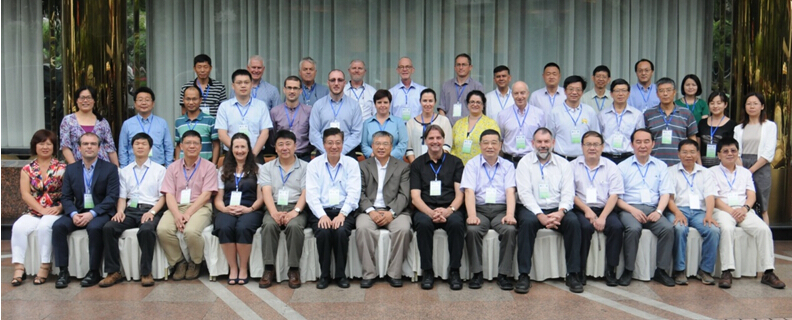CAS-CSIRO Workshop on Molecular Crop Design and Applications was held at Chengdu, Sichuan Province on June 2-5, 2015. More than twenty scientists from CAS institutes, China Agricultural University and Chinese Academy of Agricultural Sciences and twenty from Australia Scientific and Industrial Research Organization (CSIRO) attended the workshop.
Deputy Director Jinghua Cao of International Cooperation Bureau, CAS delivered a warm welcome speech, as well as a brief introduction of CAS and the reforms going on in CAS. Dr. John Manners, the Director of CSIRO Agriculture Flagship, and Dr. Chun-ming Liu, the Director of the Key Lab of Plant Molecular Physiology overviewed the cooperation between CAS and CSIRO in the past five years, and introduced the theme of the workshop.
In the two days’ workshop, both scientists from China and Australia gave talks in the four fields: yield, quality, biotic and abiotic stress, and roots and nutrient. They also reached an agreement that both parties would strengthen the cooperation on agricultural production and healthy diet, as well as build a platform for high-throughput genome editing and phenotypic analysis in the future.

CAS-CSIRO Workshop on Molecular Crop Design and Applications was held at Chengdu, Sichuan Province on June 2-5, 2015. More than twenty scientists from CAS institutes, China Agricultural University and Chinese Academy of Agricultural Sciences and twenty from Australia Scientific and Industrial Research Organization (CSIRO) attended the workshop.
Deputy Director Jinghua Cao of International Cooperation Bureau, CAS delivered a warm welcome speech, as well as a brief introduction of CAS and the reforms going on in CAS. Dr. John Manners, the Director of CSIRO Agriculture Flagship, and Dr. Chun-ming Liu, the Director of the Key Lab of Plant Molecular Physiology overviewed the cooperation between CAS and CSIRO in the past five years, and introduced the theme of the workshop.
In the two days’ workshop, both scientists from China and Australia gave talks in the four fields: yield, quality, biotic and abiotic stress, and roots and nutrient. They also reached an agreement that both parties would strengthen the cooperation on agricultural production and healthy diet, as well as build a platform for high-throughput genome editing and phenotypic analysis in the future.

